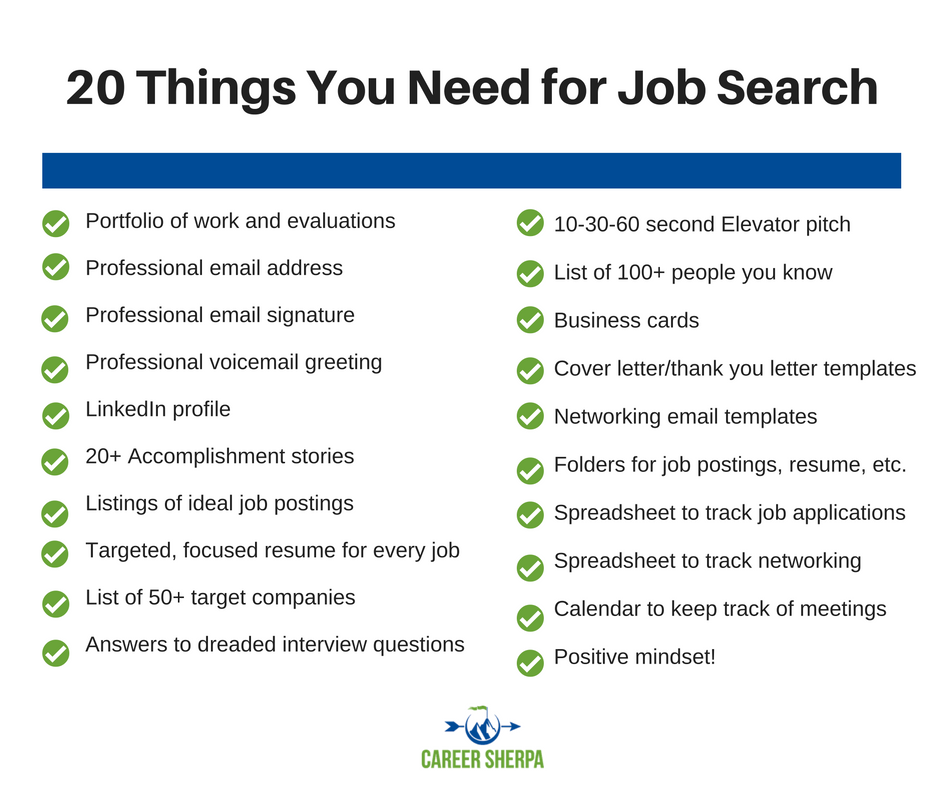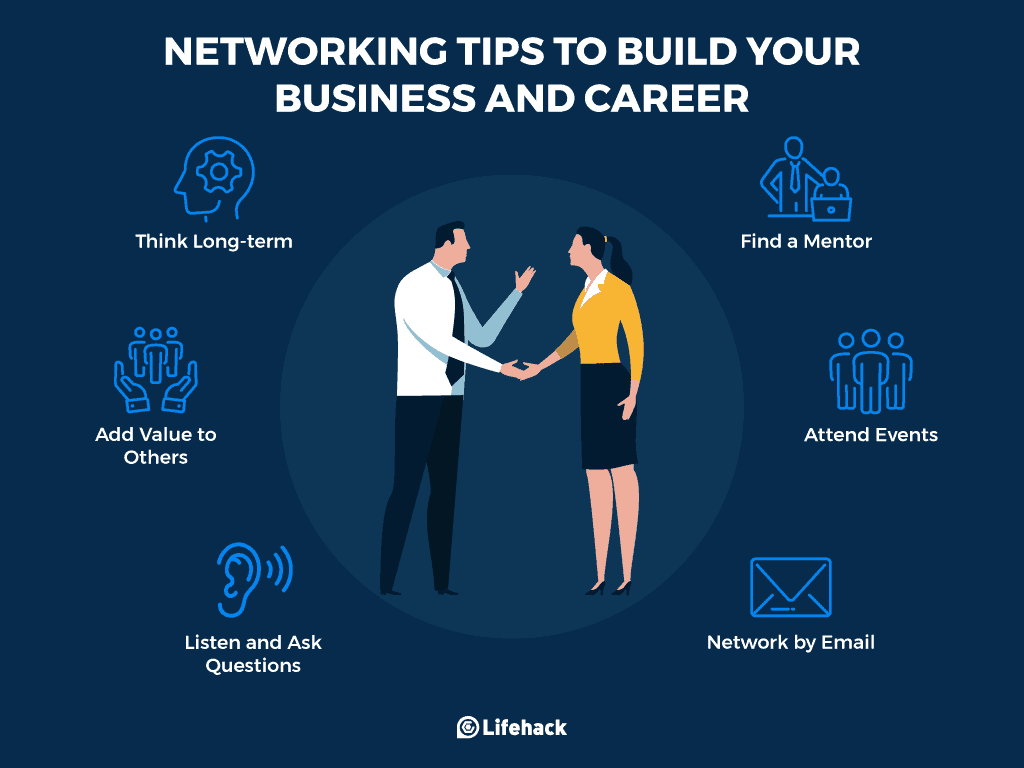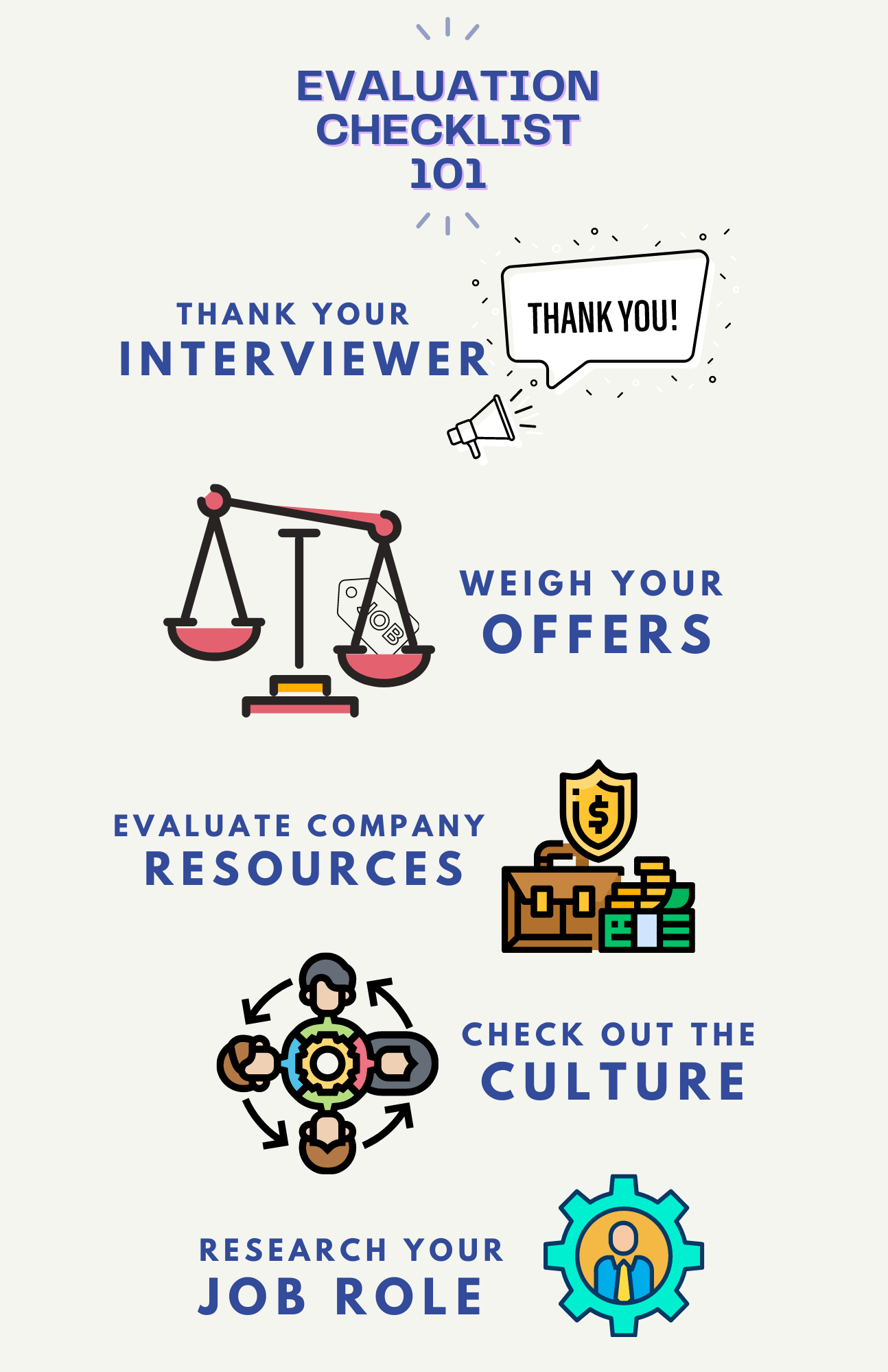Master Your Job Hunting with Essential Job Search Checklist
Date
Jun 07, 24
Reading Time
11 minutes
Category
Recruitment
- Introduction
- Preparing for Your Job Search
- Researching Potential Employers
- Crafting a Targeted Application
- Networking and Building Connections
- Interview Preparation
- Navigating the Interview Process
- Evaluating Job Offers
- Continuing Professional Development
- Conclusion
- Frequently Asked Questions (FAQs)
Table of content

Introduction
Job hunting is dead. Yes, you read that right. In today's fast-paced world, traditional job search methods are as outdated as floppy disks.
But fear not. In this guide, we're flipping the script on job hunting. We'll arm you with a no-nonsense, essential job search checklist that's your ticket to mastering the modern job search game.
Say goodbye to aimlessly scrolling through job boards and hello to a strategic approach that gets you noticed by the right employers.
With this job search checklist, detailed information about all the steps and strategies involved in job hunting will be made available to you. Ready to revolutionize your job hunt? Let's dive in.
Preparing for Your Job Search
Every crucial step, from sprucing up your resume to completing the interview, will be explained in detail. With this free job search checklist, you'll approach your job search with confidence and clarity.
Whether you're a seasoned professional or a first-time job seeker, this job search checklist template will empower you to explore multiple career growth opportunities.

Assessing Skills and Interests
Before applying everywhere, take a step back. Think about what you're good at and what you enjoy. This will help you find jobs that fit your skills and interests.
Next, consider any areas where you may need to upskill or gain additional experience. Investing in your professional development through certifications and workshops will help you in your job search.
Updating Resume and Cover Letter
Your resume and cover letter are your first impression with potential employers, so making them count is essential. Start by giving your resume a makeover, highlighting your most relevant skills and experiences front and center.
When it comes to your cover letter, don't just regurgitate what's on your resume. Instead, use it to showcase your personality and passion for the role. Tailor each cover letter to the specific job you're applying for, and feel free to show your interest.
Finally, remember to proofread both documents carefully. Having a strong cover letter is essential, so be sure to include it on your job search checklist template.
Gathering Relevant Documents and Certifications
In addition to your resume and cover letter, you may need to gather other documents and certifications before applying for jobs. Depending on your industry, this could include things like transcripts, portfolios, or letters of recommendation.
Having all your documents organized and ready to go will make the application process much smoother and less stressful.
Researching Potential Employers
Before you start applying for jobs, take some time to research potential employers thoroughly. This includes everything from company culture and values to recent projects and initiatives.
Start by identifying a list of target companies that align with your career goals and values. Then, dig deeper into each organization to get a sense of what it's really like to work there. Look for employee reviews on sites like Glassdoor and contact current or former employees for insider insights.
Identifying Target Companies and Industries
Casting a wide net isn't always the most effective strategy when it comes to job hunting. Instead of applying to every job you come across, take the time to identify a few target companies and industries that align with your career goals.
Start by thinking about what you're passionate about and what kind of work you enjoy. Then, research companies and industries that offer opportunities in those areas. Look for growing and innovating companies and sectors projected to experience significant growth in the coming years. Consider your salary expectations when crafting your job search checklist template to target appropriate positions.
Take the time to craft targeted applications that demonstrate why you're the perfect fit for the role.
Researching Company Culture and Values
The next step in your job search checklist is looking beyond the job description and salary. After all, you'll be spending a significant portion of your time at work, so finding a company culture and values that align with your own is crucial.
Start by researching potential employers online paying close attention to their company website and social media profiles. Look for information about their mission, values, company culture, and any awards or recognition they've received.
Utilizing Online Resources and Professional Networks
In today's digital age, there are plenty of online resources and professional networks to help you in your job search.
Start by creating profiles on professional networking sites like LinkedIn and optimizing them with keywords and relevant skills. Then, join industry-specific groups and participate in discussions to expand your network and showcase your expertise.
Next, explore job boards and career websites to find opportunities in your field. Look for niche job boards that cater to your industry and general job boards like Indeed and Monster.
Contact friends, family members, and former colleagues to let them know you seek a new opportunity.
Crafting a Targeted Application
When it comes to job hunting, one size does not fit all. Instead of sending out generic resumes and cover letters, take the time to tailor each application to the specific role and company you're applying to.
Start by carefully reading the job description and identifying the key skills and qualifications the employer is looking for. Then, highlight those skills and experiences prominently in your resume and cover letter.
When crafting your cover letter, tell a story about why you're the perfect fit for the role. Share specific examples when you've demonstrated the skills and qualities the employer seeks.
Using Keywords Effectively
In today's digital age, many companies use applicant tracking systems (ATS) to screen resumes and cover letters for relevant keywords. Using keywords effectively in your application materials is essential to increase your chances of getting noticed by these systems.
Start by carefully reading the job description and identifying the keywords and phrases most relevant to the role. Then, incorporate those keywords strategically throughout your resume and cover letter.
Networking and Building Connections
Networking and building connections should be crucial to your job search strategy.
Start by contacting friends, family members, and former colleagues to ask if they know of any openings or if they can introduce you to people in your industry.
Explore professional networking events and industry conferences in your area. These events are great for meeting new people and expanding your network.
Utilizing LinkedIn and Other Networking Platforms
LinkedIn is a must-have tool for job seekers in today's digital age. With over 700 million users worldwide, it's the most extensive professional networking platform on the planet.
Start by optimizing your LinkedIn profile with a professional photo and a compelling summary highlighting your skills and experiences. Include keywords and relevant skills to increase your visibility to recruiters and hiring managers.
Don't forget to update your LinkedIn profile as part of your thorough job search checklist.

Attending Industry Events and Job Fairs
Start by researching upcoming events in your area and planning to attend those most relevant to your industry and career goals. Look for events featuring speakers or workshops on topics you're interested in and networking opportunities with other attendees.
When you attend an event, come prepared with plenty of business cards and a clear elevator pitch highlighting your skills and experiences. Be proactive about introducing yourself to people and striking up conversations, and be bold and ask for contact information or follow up with people after the event.
Interview Preparation
The next part of your job search checklist is Interviews.
Start by thoroughly researching the company. Then, practice responding to commonly asked interview questions, highlighting your strengths and experiences.
Researching Commonly Asked Interview Questions
While you can't predict precisely what you'll be asked in an interview, some common questions tend to come up repeatedly. Take some time to research these questions and prepare thoughtful responses in advance.
Some common interview questions include:
- Tell me about yourself.
- What are your strengths and weaknesses?
- Why are you interested in this role/company?
- Can you give an example of a time when you demonstrated leadership/problem-solving/communication skills?
- Where do you see yourself in five years?
You'll feel more confident and prepared when the interview rolls around by preparing responses to these questions.
Practicing Responses and Behavioral Anecdotes
In addition to preparing responses to common interview questions, it's essential to practice delivering those responses clearly, concisely, and confidently.
Consider conducting mock interviews with a friend or family member or even just practicing in front of a mirror. Pay attention to your body language, tone of voice, and overall demeanor, and make adjustments as needed to come across as polished and professional.
When sharing behavioral anecdotes or examples of past experiences, follow the STAR method: Situation, Task, Action, Result. This framework helps ensure that your responses are structured and easy to follow, making it easier for the interviewer to understand and assess your qualifications.
Preparing Questions to Ask the Interviewer
You'll typically be allowed to ask questions at the end of every interview. Don't pass up this opportunity! Asking thoughtful questions shows you're engaged and genuinely interested in the role and the company.
During your interview prep, revisit your job search checklist to ensure you haven't missed any key points.
Navigating the Interview Process
The next part of your job search checklist is to prepare for interviews. Focus on demonstrating confidence and professionalism. Make eye contact, sit up straight, and speak clearly and confidently. Remember to smile and show enthusiasm for the role and the company.
Suggested Reading :10 Tips to Ace Your Job Interview
Dressing Appropriately and Arriving on Time
When it comes to job interviews, first impressions are everything. That's why it's essential to dress appropriately and arrive on time.
Start by researching the company culture and industry norms to understand appropriate attire.
Next, make sure you leave yourself plenty of extra time to get to the interview location. Plan your route in advance, and consider doing a test run the day before to ensure you know exactly where you're going and how long it will take to get there.
Finally, aim to arrive at least 10-15 minutes early for the interview. This gives you some buffer time in case of unexpected delays and shows that you're punctual and reliable.

Demonstrating Confidence and Professionalism
During the interview, it's essential to project confidence and professionalism. This starts with your body language, so sit up straight, make eye contact, and avoid fidgeting or slouching.
When answering questions, speak clearly and confidently, and don't be afraid to take a moment to collect your thoughts before responding. Remember to listen carefully to and answer the interviewer's questions fully and directly.
Following Up with a Thank-You Email
After the interview, you must follow up with a thank-you email to express your gratitude for the opportunity and reiterate your interest in the role.
If you have been waiting to hear from the employer for a week or more, you can send another email asking about your selection status.
Be sure to keep a professional tone in the email.
Evaluating Job Offers
The next part of the job search checklist is to evaluate the offer carefully and ensure it's the right fit for you.
Start by assessing the salary and benefits package. Consider not only the base salary but also any bonuses, incentives, and perks that are included. Consider factors like health insurance, retirement plans, vacation time, and any other significant benefits.
Next, consider the long-term career growth opportunities offered by the role. Is there room for advancement within the company? Will you have the chance to learn new skills and take on new challenges? Consider where you see yourself in the next few years and whether this role aligns with your career goals.
Finally, feel free to negotiate the terms of the offer if necessary. This could include things like salary, benefits, or start date. Make sure to approach the negotiation process professionally and respectfully, and be prepared to compromise if needed.

Continuing Professional Development
If you follow this job search checklist template to the word, you will land a job eventually. After securing a job, avoid complacency by prioritizing ongoing professional development.
Seek feedback from colleagues and supervisors regularly, using it to identify areas for improvement. Take online courses, attend workshops, or seek mentorship to develop new skills. Stay updated on industry trends by following relevant blogs and publications, participating in discussions, and attending events.
Similarly, job search experiences, even unsuccessful ones, offer valuable lessons. Seek feedback from hiring managers, reflect on strengths and weaknesses, and commit to improvement.
Identify areas for skill enhancement and further education, exploring opportunities like online courses or volunteer roles. Stay proactive in your professional development to ensure long-term career growth oppurtunities and success.
Conclusion
Congratulations! You've made it to the end of the free job search checklist. Armed with this comprehensive template, you're well-equipped to navigate the twists and turns of the job-hunting journey with confidence and clarity.
From assessing your skills and interests to evaluating job offers and continuing your professional development, each step of this job search checklist is designed to help you maximize your chances of success in today's competitive job market.
While a job search checklist is helpful, remember to stay flexible and adapt it to your needs. Happy job hunting! A survey conducted by Gartner reported that 93% of employers plan to continue using video calls. Companies like Relinns Technologies only conduct online interviews and assessments. You can visit their career page to apply for positions directly. Just go through these interview tips, and you will do great.

Frequently Asked Questions (FAQs)
What is a job search checklist, and why do I need one?
A job search checklist is a comprehensive guide outlining essential steps for a successful job hunt, from updating your resume to researching potential employers. It provides clarity and structure, ensuring you don't miss crucial tasks in the competitive job market.
How do I create a job search checklist?
Start by assessing your skills and interests, then update your resume and cover letter. Gather relevant documents and certifications, research potential employers, and identify target companies and industries.
How can a job search checklist help me stay organized?
A job search checklist template acts as a roadmap, breaking down the job-hunting process into manageable steps. It helps you track progress, prioritize tasks, and stay focused on your goals, ultimately saving time and reducing stress.
What are the benefits of using a job search checklist?
Using a job search checklist increases your efficiency, ensures you take advantage of important steps, and helps you approach your job search with confidence and clarity. It maximizes your chances of success in today's competitive job market.





